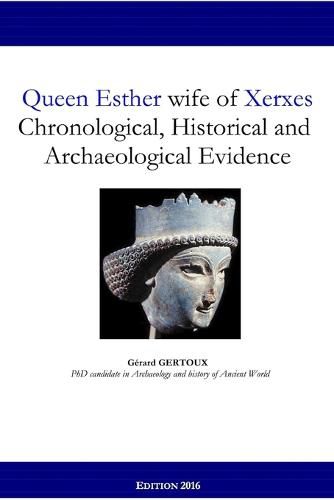Readings Newsletter
Become a Readings Member to make your shopping experience even easier.
Sign in or sign up for free!
You’re not far away from qualifying for FREE standard shipping within Australia
You’ve qualified for FREE standard shipping within Australia
The cart is loading…






This title is printed to order. This book may have been self-published. If so, we cannot guarantee the quality of the content. In the main most books will have gone through the editing process however some may not. We therefore suggest that you be aware of this before ordering this book. If in doubt check either the author or publisher’s details as we are unable to accept any returns unless they are faulty. Please contact us if you have any questions.
Very few Bible scholars believe now in the historicity of the book of Esther. There is no chronological investigation despite the fact that chronology is the backbone of history and there has been no historical research among archaeological witnesses. Worse still, to establish their chronology, historians have blind faith in the Babylonian king lists which are nevertheless false (reporting no usurpation and no co-regency). Yet it is easy to check in the tablets of Persepolis that Mordecai was an eminent royal scribe called Marduka who worked with Tatennai, the governor beyond the River, under the direction of Ustanu, the satrap of Babylon, during the years 17 to 32 of Darius. Similarly, the narrative of Herodotus regarding Amestris (a name meaning 'vigorous woman' in Old Persian), Xerxes' unique wife and only queen known in Persia, corresponds in many ways to Esther ('star' in Old Persian") despite the unfavourable and biased description of the Persian queen.
$9.00 standard shipping within Australia
FREE standard shipping within Australia for orders over $100.00
Express & International shipping calculated at checkout
This title is printed to order. This book may have been self-published. If so, we cannot guarantee the quality of the content. In the main most books will have gone through the editing process however some may not. We therefore suggest that you be aware of this before ordering this book. If in doubt check either the author or publisher’s details as we are unable to accept any returns unless they are faulty. Please contact us if you have any questions.
Very few Bible scholars believe now in the historicity of the book of Esther. There is no chronological investigation despite the fact that chronology is the backbone of history and there has been no historical research among archaeological witnesses. Worse still, to establish their chronology, historians have blind faith in the Babylonian king lists which are nevertheless false (reporting no usurpation and no co-regency). Yet it is easy to check in the tablets of Persepolis that Mordecai was an eminent royal scribe called Marduka who worked with Tatennai, the governor beyond the River, under the direction of Ustanu, the satrap of Babylon, during the years 17 to 32 of Darius. Similarly, the narrative of Herodotus regarding Amestris (a name meaning 'vigorous woman' in Old Persian), Xerxes' unique wife and only queen known in Persia, corresponds in many ways to Esther ('star' in Old Persian") despite the unfavourable and biased description of the Persian queen.